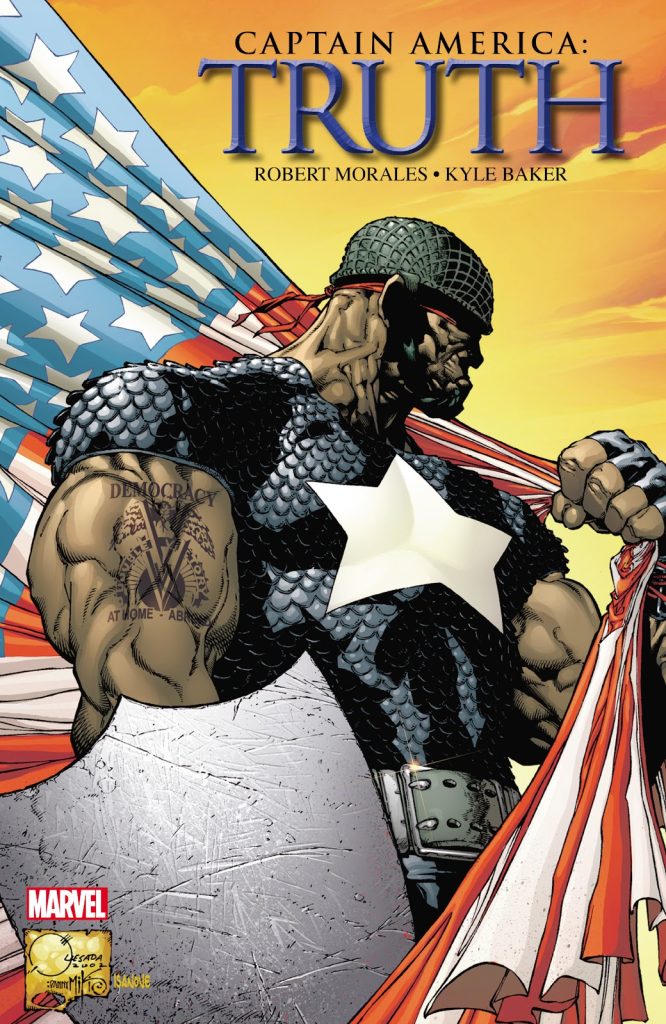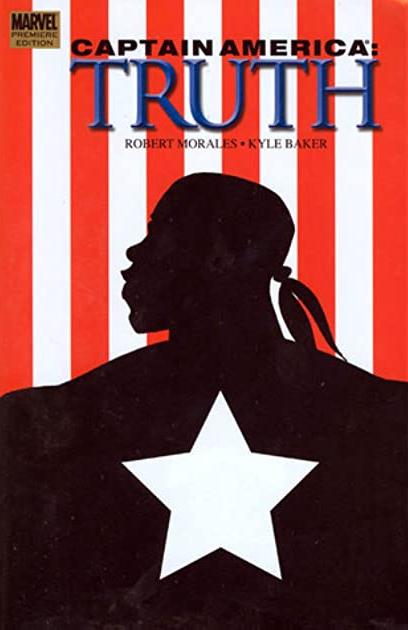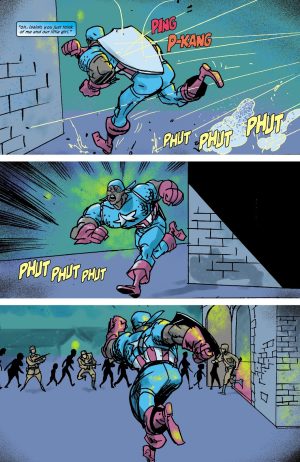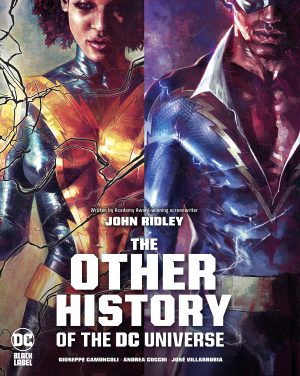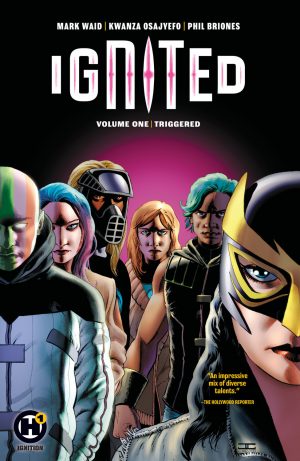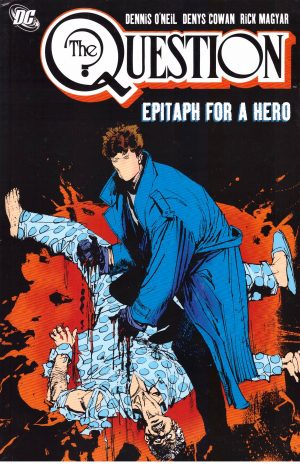Review by Win Wiacek
It’s never been more apparent than these days, but Truth is a Weapon. Facts, events and especially interpretations have always been manipulated to further a cause, and that simple premise is the basis of one of the most groundbreaking and controversial Captain America stories.
For decades Captain America’s origin of scrawny WWII patriot Steve Rogers dosed with super serum has been massaged and refined, yet remained essentially intact. However, in 2002 writer Robert Morales and artist Kyle Baker took a cynical second look at the legend through the lens of the treatment of and white attitudes towards black American citizens.
The result is a hard-hitting view of the other side of a foundational myth, using the tragedy and inherent injustice of the situation to add to the pantheon more – and more challenging – heroes of colour and contemporary role models.
‘The Future’ begins at “Negro Week” of the 1940 New York World’s Fair where Isaiah Bradley and his bride Faith learn yet again they remain second class citizens, and that their rights and freedoms are conditional. December in Philadelphia sees young firebrand and workers’ rights activist Maurice Canfield painfully realise that even his father’s hard-earned wealth and position mean nothing as long as their skin is dark in America. In Cleveland in June of 1941 war veteran Luke Evans remains in the army. It’s fiercely segregated and he’s been demoted to sergeant, but is content to take each day as it comes.
Everything changes when the Japanese attack Pearl Harbor in December 1941. Bradley, Canfield and Evans are selected by their openly racist commander to become part of two battalions of African American recruits provided to oily G-Man Homer Tully and scientist Dr. Josef Reinstein.
Wartime secrecy is then employed to mask an appalling act of racist cynicism, as hundreds of patriotic black men are trained and callously discarded as Reinstein methodically perfects his super-soldier serum on what he considers expendable lower race guinea pigs. Only a handful of men survive, and all are radically changed… or, more accurately, mutated. Next of kin are informed their loved ones have been killed in training, but Faith Bradley knows the corpse in the casket is not her man and starts making waves.
Ultimately, military pragmatism supersedes scientific caution and seven remaining victims, all immensely powerful in radically changed bodies, are pressed into action as an expendable super-suicide squad. Survivor Isaiah Bradley is coerced into returning to Germany on a solo suicide mission. Apparently, the “real” Captain America is unable to get there in time. Rebellious to the end, Bradley complies, but steals and dons the flashy star-spangled uniform worn by the public – blue-eyed, blonde and exceedingly white – face of America’s Super Soldier Project. It’s October 1942 and the last time the world hears from or about Bradley.
The action then shifts to superhero Steve Rogers meeting Bradley’s widow and discovering something truly astounding. Stunned to have unearthed a secret history of oppression and immorality that occurred all around him without his slightest inkling, Rogers is distraught and furious. He learns more uncomfortable truths about his origins and the true nature of the country he loves and represents.
This landmark saga is backed up with a context-laden, disturbingly informative appendix by Morales, clarifying and expanding on many previously sidelined moments of actual and black history that informed the story.
Powerful, engaging, enlightening and immensely gratifying, this is a story to enrage and enthral, and one no socially aware superfan should miss.
